Iraq Reiterates Plan For Legal Action Against Iran Over Water
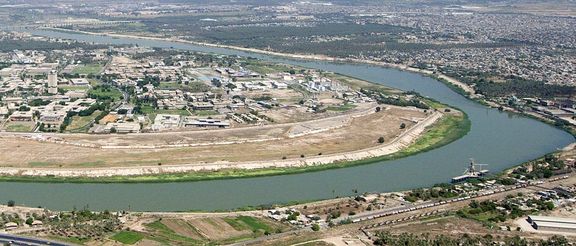
Baghdad will file an international lawsuit against Iran over water disputes, a senior advisor to the Iraqi Ministry of Water Resources said Sunday.

Baghdad will file an international lawsuit against Iran over water disputes, a senior advisor to the Iraqi Ministry of Water Resources said Sunday.
Aoun Diab had forwarded a dossier to the government after Iran had failed to respond after requests to discuss its diverting six rivers flowing into Iraq. Diab criticized what he called a lack of cooperation and drew an unfavorable comparison with Turkey given a delegation from Ankara was due to arrive for a field study.
Iraqi officials have for months talked of filing a case with the International Court of Justice, while Iranian officials have suggested Iraq’s chronic water challenge – the United Nations in 2017 ranked it the world’s fifth most vulnerable country to water shortage and food availability – results more from Turkish dams.
In April, Minister of Water Resources Mahdi Rashid al-Hamdani accused Tehran of ignoring Iraqi water rights “even if its dams are filled with water."
Both the Tigris and Euphrates, Iraq’s most important sources of water, originate in Turkey, although tributaries come from Syria and Iran.
Across the Middle East, water shortages have fed tensions between countries and within countries. Iranian officials have warned of a further fall this year in precipitation.
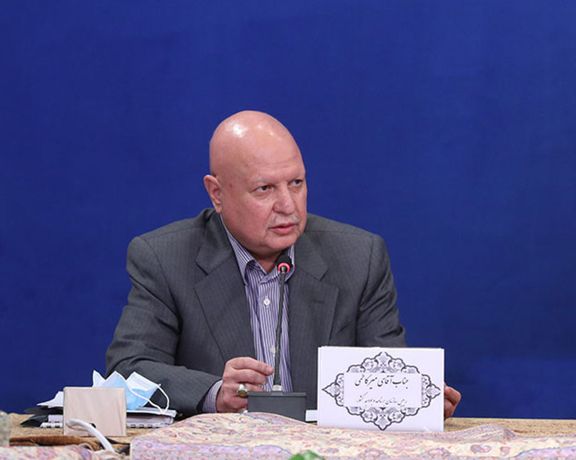
Iran is providing more than $100 billion annually in energy subsidies to citizens, a senior official says, amid a steep rise in food prices and general uncertainty.
The head of the Planning and Budget Organization Massoud Mirkazemi told state television that the government is in the process of “reforming the subsidy system…and we are close to final decisions.” He repeated the official argument that the government wants the subsidy to go to the people instead being wasted in different ways.
His remarks signal the implementation of a long-suspected plan to make hydrocarbon fuels and electricity more expensive. Iran has the world’s second cheapest gasoline after Venezuela and the cheapest electricity for more than four decades.
One gallon of gasoline is around 22 cents and citizens are said to be using too much electricity and natural gas which are similarly offered at extremely low rates.
However, inflation has stood above 40 percent in the past 12 months and food prices have risen even faster. As the people’s purchasing power has declined, many expect another round of protests. An increase in energy prices might be too much for the population to bear.
Mirkazemi said that in addition to energy subsidies, the government is providing another $20 billion to keep food and medication affordable.
As it tries to save financial resources after four years of tough United States’ sanctions, the government might be risking a popular backlash.
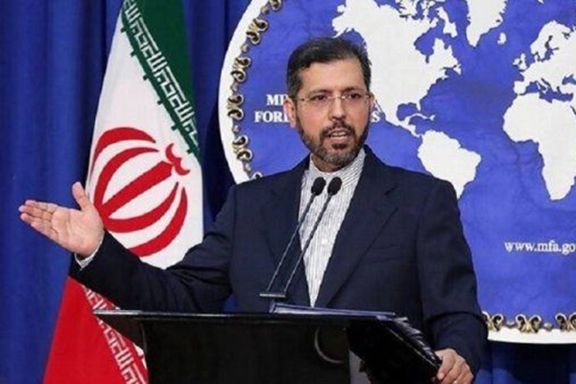
Iran has again criticized the trial in Sweden of former judicial official Hamid Nouri over his alleged role in a wave of prison executions in 1988.
Speaking at a weekly press conference in Tehran Monday, Foreign Ministry spokesman Saeed Khatibzadeh said Sweden had “no jurisdiction” in the case and that the defendant’s “basic rights” had not been respected.
Khatibzadeh denied any connection between Nouri and the case of Swedish-Iranian doctor and academic Ahmadreza Djalali (Jalali), whose death sentence after an espionage conviction was recently reaffirmed six years after his arrest.
A verdict in the Nouri’s trial, which recently concluded, is due in July. He was arrested in 2019 on arrival at Stockholm airport, with his trial beginning August 202l over his alleged role in executions in Gohardasht prison, near Tehran in Iran in July- August 1988.
Khatibzadeh said the Nouri trial was a trap set by the Mujahedin-e Khalq Organization (MEK), an Iranian opposition group. “It is suspicious why the Swedish government is allowing this,” he noted.
MEK members have acted as witnesses, with the court adjourning some sessions to Albania, where the MEK was relocated from Iraq by the United States in 2016. The bulk of victims in 1988 were MEK members or supporters. Both Tehran and Washington have denied that reported talks over a potential prisoner exchange are linked to efforts to revive the 2015 Iran nuclear deal.
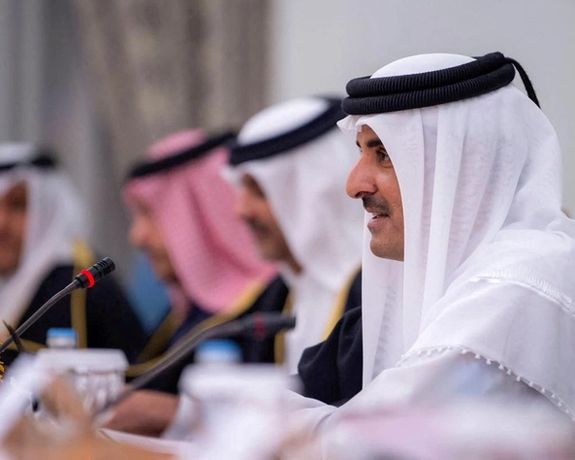
Qatar's Emir will visit Iran soon, Iran's foreign ministry spokesman Saeed Khatibzadeh confirmed on Monday during his weekly news conference.
"The visit of the Emir of Qatar to Tehran is on the agenda and includes bilateral, regional and international issues. After this trip, Iran's President will travel to a Persian Gulf country," Khatibzadeh said.
Citing a source, Reuters reported on Sunday that Emir Sheikh Tamim bin Hamad al-Thani will visit Iran before traveling to Germany, Britain and other European states to discuss efforts to revive Iran's 2015 nuclear deal and energy security in Europe.
The source added the Emir's trip aimed at bringing parties to the Iran nuclear pact to a "new middle ground." This follows an impasse in indirect Iran-US talks over Tehran's insistence that Washington remove the Islamic Revolutionary Guard Corps (IRGC) from the US Foreign Terrorist Organization list.
Other regional countires, including Saudi Arabia, Israel and the United Arab Emirates are opposed to reviving the JCPOA by lifting major economic sanctions and possibly removing IRGC from the US Terror list.
Qatar's Emir last visited Iran in January 2020 to reduce tensions between Tehran and Washington following the killing of top Revolutionary Guard Commander Ghasem (Qasem) Soleimani by the United States whilst on a visit to Iraq.
Iranian state media also reported the Emir's trip was meant to follow up on several bilateral memoranda of understanding signed during Iran's President Ebrahim Raisi's visit to Doha in February.
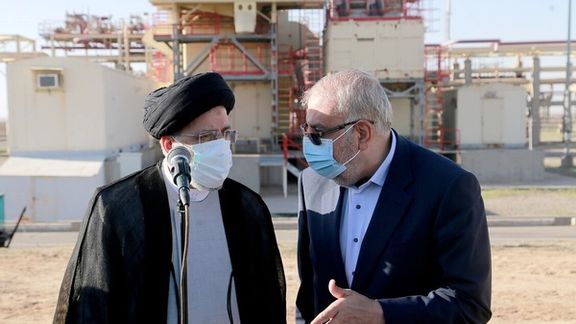
Iranians wonder what has happened to tens of billions of dollars in recent oil revenues, when the economy weakens, the currency keeps falling, and prices rise.
With the deterioration of the economic situation in recent days and the danger of a social explosion, even state-controlled media publish interviews and comments about the mystery of oil revenues and higher taxes collected by President Ebrahim Raisi’s government.
According to official statements by the president and the oil minister, Iran has earned at least $45 billion in the past 12 months from higher exports and prices of crude oil and refined oil products. This is double of what Iran managed to earn in 2020, without any visible impact on the economy.
Hossein Raghfar a professor of economics in Zahra University in Tehran told the Iranian Labour News Agency, ILNA, that the money is being taken out of Iran by corrupt officials.
“The question now is why the impact these revenues are not being felt,” Raghfar said, and insisted, “One of the main reason is flight of capital from the country.”
He did not provide any details or evidence for his claim of massive capital flight, but a recent scandal surrounding the family of the parliament speaker traveling to Turkey for luxury shopping and reportedly buying two expensive apartments there for $1.6 million, speaks volumes about corruption and money taken out of the country by the elite.
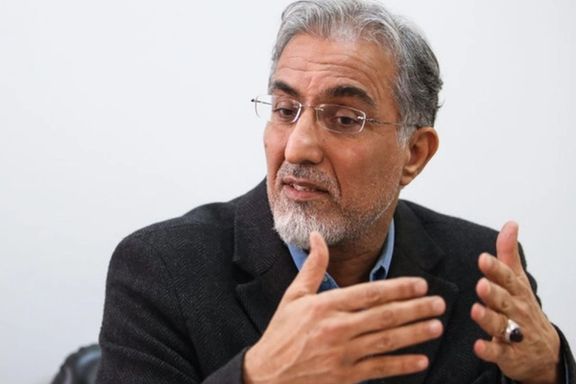
A Turkish nationwide news channel, TGRT, not only confirmed claims by Iranian sources that Mohammad Bagher Ghalibaf (Qalibaf) family purchased apartments but reported that 500 luxury units in the same high-rise complex have been purchased by families of Iranian officials. That would mean around $500 million of illicit funds taken out of the country and invested in just one location in Turkey.
Raghfar said that if government claims of exporting around one million barrels of crude per day are true, Iran can expect around $100 billion of revenue from its traditional financial lifeline. That kind of money should stop the fall in the value of rial, which reached a four-month low on Saturday trading at 285,000 to the US dollar. Just in late 2017, before the United States pulled out of the nuclear agreement known as JCPOA, the rial was trading at 33,000 to the dollar – an almost ninefold fall in less than five years.
The former head of the central Bank, Abdolnaser Hemmati, issued a short video on Sunday saying that the Raisi administration can be called “The sultan of printing money.” Raisi has been claiming that he stopped his predecessor’s practice of generating money for the government by printing more banknotes, but Hemmati said that according to new central bank date the government printed close to $6 billion additional money from August to March, which fuels inflation.
Raghfar also drew attention to large quasi-government companies not paying any taxes, and instead receiving subsidies. These companies are run by political appointees who are friends or family members of top government officials and can easily share funds with others in their circle.
He went to say that currently all major government institution are controlled by conservative (loyal to Supreme Leader Ali Khamenei) and the Raisi government has no excuse of disunity in failing to improve the economy. Why the government is eliminating subsidies for essential commodities, raising the price of bread fivefold, he asked, and said it is not clear what is happening to public wealth.
“Iran’s economy is hostage to various mafia interests, who spend a lot of [public] money and embezzling huge funds,” Raghfar said.
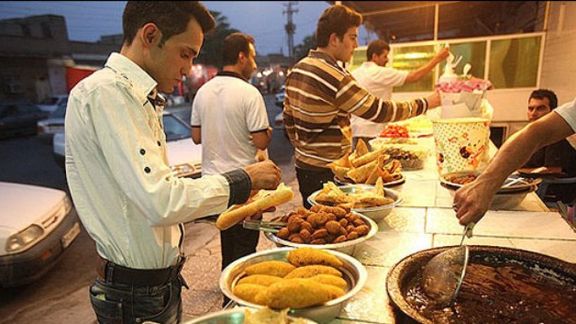
The controversy surrounding an unusual rise in bread prices in Iran led to confusion and heated debates at the Iranian parliament, Majles, Sunday morning.
The Majles held a session behind closed door to probe into the cause of the problem, but the parliament's presidium member Alireza Salimi told the press that as questions put to Economy Minister Ehsan Khandouzi and Agriculture Minister Javad Sadatijejad dragged on and on, the Majles continued the debate in an open session.
The political scene appeared to be in chaos as parliament scrambled to appear active, demanding answers from the government, while officials seemed unable to present coherent explanations.
According to Salimi, the ministers told the parliament that reasons behind the recent flour price increase include the war in Ukraine, the draught in the region and Iran's problems in importing wheat as protests took place over the weekend in the oil-rich Khuzestan province.
Salimi added that lawmakers called on the government to clearly name the senior officials responsible for economic decisions. This was because of discrepancies in government statements about the cause the rising price of bread and about how to sort out the problem.
Meanwhile, Majles Speaker Mohammad Bagher Ghalibaf told ISNA news websitethat price increases were unacceptable and the government should have first issued electronic coupons for underprivileged citizens to make sure they could still buy bread at a subsidized rate. Ghalibaf also revealed that the government will be issuing electronic coupons for other commodities such as cheese.

Ghalibaf said the way the government dealt with the rising prices of pasta and bread caused serious concern as people thought this was the beginning of more widespread price increases.
He also criticized first vice president Mohammad Mokhber for not showing up in parliament to offer explanations to lawmakers.
In a belated explanation on the state television late on Saturday night, Mokhber said that "The subsidy on bread and medicine will not be cut off." He added: "We have allocated a subsidy to traditional bread which according to legislation will be paid via electronic coupons. Subsidies have also been considered for other essential commodities to compensate for rising prices." Mokhber reiterated that these subsidies will be paid into the accounts of the heads of families before government raises prices."
While the vice president spoke about government assistance plans, bread prices have already risen fivefold in the past few days.
Mokhber's remarks convinced few people as others including Vice President for Economic Affairs Mohsen Rezaei offered a different explanation. Rezaei said on state TV that everyone in Iran will be getting 2 to 3 million rials (8-12 dollars) in cash handout from the government every month. However, he had to immediately return to the TV studio and deny his own statement on national television.
Remarks by Ghalibaf and Mokhber indicated that bread rationing is part of the government's plan to tackle rising prices, but officials disagreed about the size of the ration.
During Sunday, Iran International TV showed footage of Iranian Lawmakers at the Majles angrily reacting to the government's chaotic policy on pricing and distribution of bread.
According to Didban Iran website lawmaker Ahmad Hossein Fallahi charged that the ministers who reported to the Majles on Sunday had nothing new to say about the problem or its solution. The website quoted lawmaker Hojjatollah Firouzi as saying that the situation has given rise to concerns at the parliament, and another lawmaker Ebrahim Azizi criticized the government for not offering explanations to the people before the price rise.
Iranian journalist Solmaz Ikdar told Iran International that lawmakers have realized Raisi is unpopular, and his policies have failed, so they try to distance themselves from his administration.